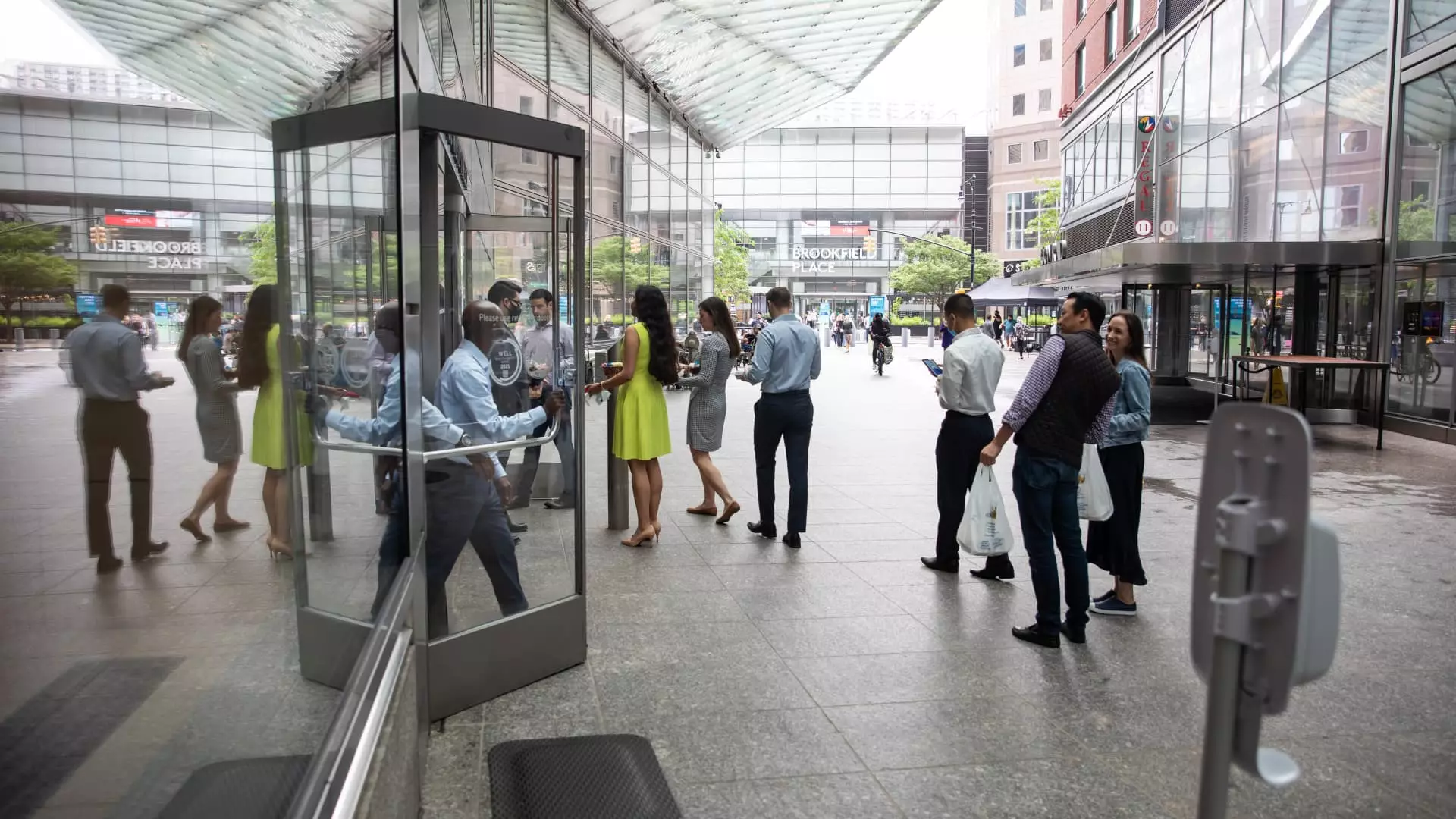The growing number of high-ranking executives anticipating a recession should be a glaring red flag for policymakers and the general public alike. According to a recent survey conducted by Chief Executive, a staggering 62% of CEOs foresee an economic downturn within the next six months. This figure signifies a notable increase from just 48% in the previous month. Such a trend speaks volumes about the undercurrents of concern brewing within the boardrooms of America’s largest corporations. The unease is palpable, driven by fluctuations in financial markets that seem to be tethered to the whims of President Trump’s erratic tariff policies.
The malaise rippling through corporate America isn’t simply based on conjecture; it’s anchored by stark economic realities. With the tariffs implemented and then rapidly reversed, the message is clear: uncertainty breeds instability, and instability threatens growth. Nearly three-quarters of CEOs believe that tariffs will indeed harm their businesses as far out as 2025, a forecast that paints a bleak picture for a nation already grappling with fragile economic indicators. It seems we are at a crossroads where political maneuvering is overshadowing sound economic management, and the fallout could be far-reaching.
Declining Business Sentiment
As the survey results unfold, a closer look at the metrics reveals a steep decline in the index reflecting CEOs’ perceptions of current business conditions—plummeting by 9% in April alone. This downturn comes on the heels of a staggering 20% nosedive in the previous month. The present standings resemble those tumultuous early days of the pandemic in 2020, a time when economic uncertainty loomed large over everyone’s head.
Future projections tell a similarly grim story. Although CEOs are holding steady in their long-term forecasts for business conditions—a slight glimmer of optimism—these figures remain at their lowest since late 2012. Moreover, the anticipations that operating costs will spike significantly this year only serve to exacerbate the already concerning outlook. Over 80% of executives predict double-digit increases in costs, further fuelling trepidations about profit margins and operational sustainability.
Profits Under Threat
An ominous undercurrent resonates through the survey: only 37% of respondents believe that their profit margins will see an uptick in the coming year. Compare this to the robust 76% who expressed high optimism just back in January, and it becomes evident that something has shifted in the economic landscape. This sudden dip in confidence is not a mere coincidence; it directly correlates with the unpredictability stemming from the current administration’s trade policies.
Despite pockets of cautious optimism—such as the marginal increase in the percentage of respondents who believe conditions may improve—these rose-colored glasses are still tempered by a somber assessment of reality. The long-term ramifications of trade disruptions have trickled down into the psyche of corporate leaders, and the effects are beginning to manifest visibly in earnings projections and operational forecasts.
A Call for Stability and Leadership
As the executives of Fortune 500 companies express their concerns and re-evaluate their strategies, the need for coherent and stable economic leadership becomes evident. It is critical that policymakers acknowledge the testimonies of these business leaders rather than dismissing their insights as merely the musings of the disgruntled. If this valuable feedback goes unheeded, the consequences may be dire—not just for businesses but for the economy at large.
JPMorgan Chase’s Jamie Dimon and BlackRock’s Larry Fink have both soundly articulated the risks associated with continued volatility. Dimon’s assertion that S&P 500 earnings are likely to decline further underscores a crucial point: we are at a juncture where steady hands are needed to navigate through tumultuous waters. The corporate sector is echoing sentiments that political volatility can have economic repercussions, and it’s a stark reminder that this is not just a boardroom issue. The health of the economy impacts every American, from blue-collar workers to shareholders—everyone deserves a stable economic environment that fosters growth, innovation, and optimism.

